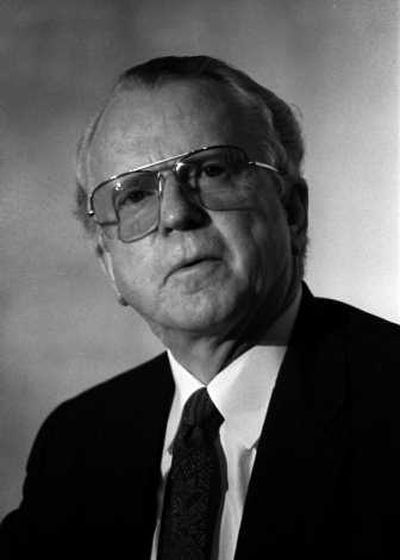Ex-GM chief Roger Smith dies at 82

DETROIT – Roger B. Smith, who led General Motors Corp. in the 1980s and was the subject of Michael Moore’s searing documentary “Roger & Me,” has died, the automaker said Friday. He was 82.
Smith died Thursday in the Detroit area after a brief illness that GM did not identify.
He was appointed chairman and chief executive on Jan. 1, 1981, and led the world’s largest automaker until his retirement on July 31, 1990.
With Japanese automakers gaining momentum in the U.S. as Smith’s tenure began, he responded with GM’s first front-wheel-drive midsize cars. He also formed a controversial joint venture with Toyota Motor Corp. to manufacture cars in California, created the Saturn small-car brand to fight the imports and acquired Electronic Data Systems and Hughes Aircraft Corp.
“Roger Smith led GM during a period of tremendous innovation in the industry,” current GM Chairman and CEO Rick Wagoner said in a statement. “He was a leader who knew that we have to accept change, understand change, and learn to make it work for us. Roger was truly a pioneer in the fast-moving global industry that we now take for granted.”
Smith also served GM as an executive vice president and a member of the board of directors beginning in 1974.
Moore has become an Oscar-winning documentary maker, but he became famous with “Roger & Me,” which explored how GM’s plant closings and layoffs affected his hometown of Flint.
The 1989 film chronicles Moore’s fruitless attempts to interview Smith about the devastation in Flint, although magazine articles and documentaries have alleged that Smith granted interviews to Moore prior to the film’s release.
Moore has acknowledged a five-minute exchange with Smith about a company tax abatement during the public comment portion of a 1987 shareholders’ meeting, but said that was before he started working on the movie.
Smith often faced questions about the documentary, which contained interviews of people who said they lost their homes after GM plant closures in Flint.
One woman said she had to start killing rabbits for food after GM shut down the plants, eliminating 30,000 jobs in the city of 150,000.
“I haven’t seen it,” Smith told reporters shortly after the film was released. “I’m not much for sick humor, and I don’t like things that take advantage of poor people.”
At the time, Moore said he arranged with Warner Bros. to reserve a seat for Smith at every showing of the movie across the United States.
Robert Stempel, who succeeded Smith as GM chairman and CEO, said Smith never was bothered by the movie.
“Those things, when you’re a CEO, you learn to roll with the punches,” Stempel said Friday. “You can’t let yourself get bruised by that sort of thing. You have to rise above it, and he certainly did.”
Stempel, who served as president under Smith, said Smith foresaw Japanese imports rising in the U.S. and fuel efficiency becoming a major issue. In response, he created Saturn and led a shift in GM’s car model lineup from rear-wheel-drive to more efficient front-wheel-drive vehicles.
Despite the efforts, GM’s U.S. market share dropped from around 45 percent when Smith took GM’s top job to just over 36 percent when he left. The company’s market share currently is about 24 percent.